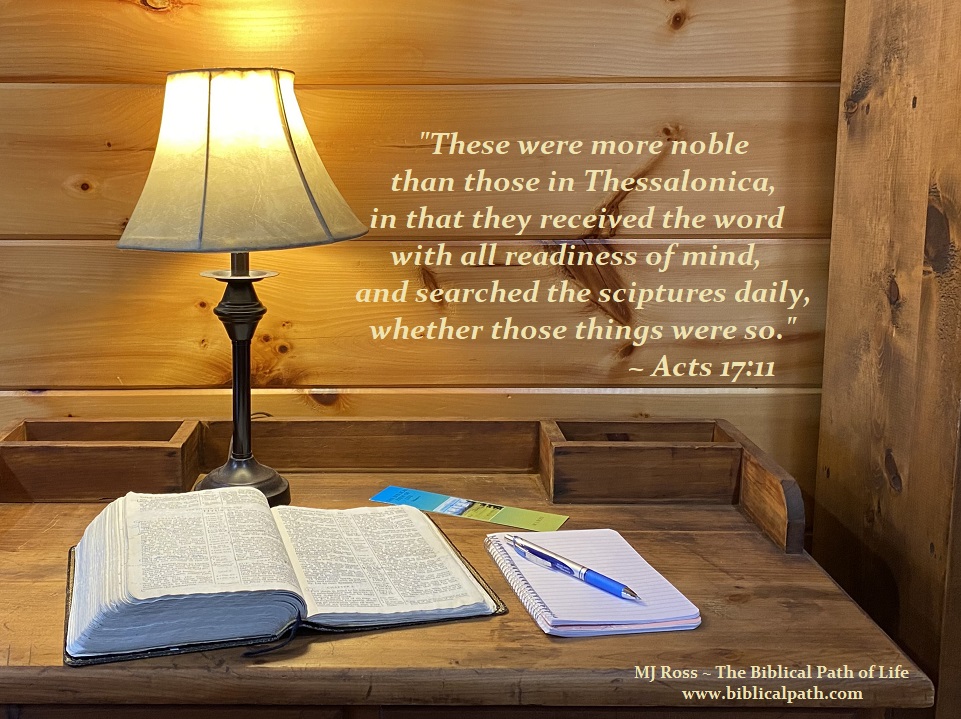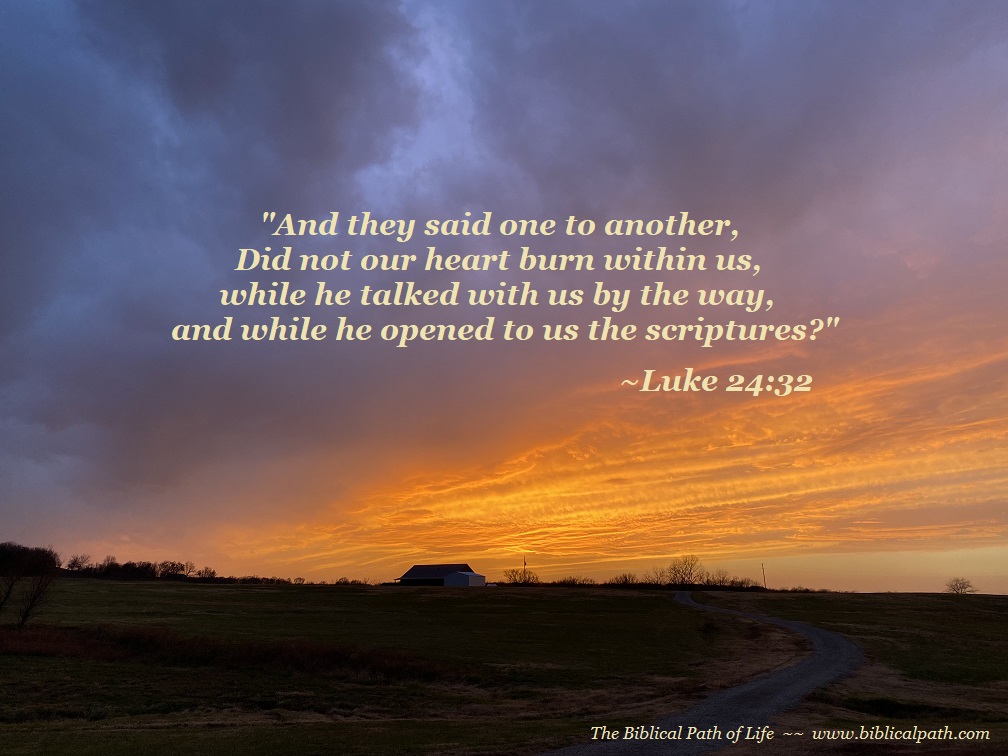
“These were more noble than those in Thessalonica, in that they received the word with all readiness of mind, and searched the scriptures daily, whether those things were so.”
Acts 17:11
There seems to be a genuine question: can women teach in the church?
Consider the following thoughts, and do what Paul challenged the Bereans to do: “11. These were more noble than those in Thessalonica, in that they received the word with all readiness of mind, and searched the scriptures daily, whether those things were so. 12. Therefore many of them believed; also of honourable women which were Greeks, and of men, not a few” (Acts 17:11-12).
The book of 1 Corinthians was written to a church Paul had established in a very pagan city. The people who lived in Corinth were immoral and worshiped a pagan goddess. Paul wrote to the church to teach the new Christians that they needed to forsake their former lifestyles and understand how to function orderly within the church. The natural man does not operate the same way as the spiritual man. Paul taught them of the order in the homes and the order in the church. There are many spiritual gifts, and the members of a church have different gifts. Christians are to function together using those gifts as the body of Christ (see 1 Corinthians 12). One of the gifts that was obviously used improperly was the gift of tongues. It was causing much confusion in the church, so Paul dealt with it. In 1 Corinthians 14, Paul encouraged them to use their spiritual gifts properly. None of the gifts were to bring attention to that individual, but all attention is to be given to the Lord. “If any man speak in an unknown tongue, let it be by two, or at the most by three, and that by course; and let one interpret” (1 Corinthians 14:27). When someone spoke in a unknown tongue (tongue means “by implication a language (specifically one naturally unacquired)”), there was to be an interpreter present “But if there be no interpreter, let him keep silence in the church; and let him speak to himself, and to God” (1 Corinthians 14:28). Let him keep silence means “to keep silent; hold peace.” The overall point was to eliminate the confusion of unintelligent utterances and too many speaking at once. Instead it was to be one by one (see 1 Corinthians 14:29-32). “For God is not the author of confusion, but of peace, as in all churches of the saints” (1 Corinthians 14:33). Knowing that the position of the elder (pastor), deacons and leaders in the churches are to be men helps in the understanding of the following verse: “Let your women keep silence in the churches: for it is not permitted unto them to speak; but they are commanded to be under obedience, as also saith the law” (1 Corinthians 14:34). This is quite a favorite verse for some people! However, consider a couple of things. First, the reference is to the confusion that had entered the church in the form of tongues (which included the men being told to keep silent as well! See verse 27-28). Second, no one addresses the second part of that verse: “but they are commanded to be under obedience, as also saith the law” (1 Corinthians 14:34b). If you go back and read 1 Corinthians 11:1-17, you can understand that Paul was correcting the error for the way men and women had been praying or prophesying. Prophesying and prophesieth means “to declare truths through the inspiration of God’s Holy Spirit whether by prediction or not.” The men and women in 1 Corinthians were declaring truths, however they were not doing it under obedience to the way God wanted it done in the churches (women were to be submissive and under the authority of their husbands). So, when you put these verses all together, you find that men and women are both able to teach (or prophecy: “to declare truths through the inspiration of God’s Holy Spirit”), however if it is not done correctly, both are told to keep silent. Because of the order of the family and the church that Paul taught (especially in Corinth), we can understand that when a wife does not understand what is happening or taught in a church service, she is to ask her husband at home – not publicly address the issue in church. Addressing them in a public forum at church will most likely cause more problems. This is what Paul was addressing: the confusion in the church. Note the following: “If any man think himself to be a prophet, or spiritual, let him acknowledge that the things that I write unto you are the commandments of the Lord” (1 Corinthians 14:37). Paul (under the inspiration of the Holy Spirit) was writing that this is not anyone’s opinion. This is the commandments of the Lord. If someone does not like this? “ But if any man be ignorant, let him be ignorant” (1 Corinthians 14:38). Man here means “someone, anyone, a certain one.” Ignorant means “to know clearly, it means to be mistaken, misunderstood” translated as unknown in other verses.
In Titus, Paul not only wrote about the duties of pastors, in chapter two he began with what must be taught to Christians in general. “But speak thou the things which become sound doctrine” (Titus 2:1). Sound means “of doctrine, meaning sound doctrine; true, pure, uncorrupted.” Doctrine means “the thing taught, instruction, precept, as coming from God meaning divine teaching.” The integrity of the Gospel message and the Christian lifestyle must be kept true. Paul also taught the basics of Christian behaviors, beginning with the“aged men” (see Titus 2:2):(note some definitions to help understand in [ ] after some words):
- “That the aged men be sober, [Sober means “to be temperate; self-controlled; sober-minded; watchful; circumspect.”]
- grave, [Grave means “to worship; venerable; reverend; reputable; dignified. That which is derived from a higher citizenship, a heavenly one, which is the possession of all believers: a majestic and awe-inspiring quality which does not repel but rather invites and attracts.”]
- temperate, [Temperate means “discreet; sober; of a sound mind; self-disciplined in one’s freedom; self-restrained in all passions and desires.”]
- sound in faith, [Sound in faith means “of persons meaning firm, pure in respect to Christian doctrine and life.”]
- in charity, [Charity means “love; affectionate regard; goodwill; benevolence.”]
- in patience.” [Patience means “the patience God bestows as in the patience as a quality of mind; the bearing of evils, and suffering with tranquil mind.”]
It is important to understand how the aged men were to behave, for these things are also required behavior of the “aged women” (see Titus 2:3). Notice that the following list is a continuation of the listing for the aged men (as indicated by the word “likewise”: (note some definitions to help understand in [ ] after some words):
- “The aged women likewise, that they be in behaviour as becometh holiness, [As becometh holiness means “such as becomes sacred persons; venerable; meaning to act like a sacred person.”]
- not false accusers, [False accusers means “one who falsely accuses and divides people with any reason; an accuser; a slanderer.”]
- not given to much wine, [Given to much wine means “it implies not a dependence upon, or becoming bondage to fermented drink. The drinking of wine, though not forbidden by Scripture (although drunkenness is), it is to be avoided in the presence of weaker brothers who might be influenced to partake against their consciences (see Romans 14:21).”]
- teachers of good things;” [teachers of good things means “a teacher of the right.”]
Notice that the aged women not only have the duty to perform the things listed for the aged men, and also the things in Titus 2:3, but they are obligated to live these things out in their lives enabling them to do the following. The aged woman (not necessarily an age in years, but in wisdom according to God’s Word) must not only know the doctrines of the faith, but the instructions found within the Word of God. These are the good and right things that must be taught to the younger women, enabling them to fulfill their proper duties as Christians, wives, and mothers. If one has not learned the doctrines of the faith and the instructions in the Bible, they will be ill-equipped to live an enabled life to be good wives and mothers (which are addressed in (Titus 2:4-6). Especially note how Titus 2:4 begins: “4. That they may teach the young women to be sober, [Teach the young women to be sober means “to teach young women to be sober-minded; to discipline, train, to think and act soberly, discreetly, and in moderation; to correct and teach; the young women are to be taught to ‘voluntarily place limitations upon their own freedoms’.”] Christian women need to be taught that they are just as important to God as anyone else (see Galatians 3:28), but God has a specific job for them (just as any other Christian: see Ephesians 2:10). Nowhere does this exclude teaching other women or encouraging them in the Lord.
Titus 2:5-6 continues to reference the behavior with one’s own husband and children. When Paul speaks of submissiveness by a woman, it is always on the part of a wife to her own husband: as in 1 Timothy 2: “11. Let the woman learn in silence with all subjection. 12. But I suffer not a woman to teach, nor to usurp authority over the man, but to be in silence” (1 Timothy 2:11-12). Silence means “stillness, that is, desistance from bustle or language: – quietness, silence.” The man means “a man (properly as an individual male): husband.” Once again, this is in reference to a woman, in quietness, learning from her husband as she is under his authority (per the curse in Genesis 3:16-17). Probably the most difficult thing for a woman is to recognize that God expects them to “voluntarily place limitations upon their own freedoms”. If women would do this one thing that God requires, the feminist movement would die overnight.
Christians are encouraged to do the following: “16. Let the word of Christ dwell in you richly in all wisdom; teaching and admonishing one another in psalms and hymns and spiritual songs, singing with grace in your hearts to the Lord. 17. And whatsoever ye do in word or deed, do all in the name of the Lord Jesus, giving thanks to God and the Father by him.” (Colossians 3:16-17).
Now, as to what the Bible warns to anyone who desires to be a teacher of the Word of God: “My brethren, be not many masters, knowing that we shall receive the greater condemnation” (James 3:1). Masters means “a teacher; an instructor.” Take note that teachers will receive the greater condemnation. Condemnation means “the result of a decision; the execution or judgment, punishment.” Each teacher of God’s Word will be held more accountable for what they teach. However, God has enabled and even called some people to teach the Word of God. “Who is a wise man and endued with knowledge among you? let him shew out of a good conversation his works with meekness of wisdom” (James 3:13). One must live their faith “with meekness of wisdom” before one considers doing anything else.
Have you chosen to receive the word with all readiness of mind, and search the Scriptures daily finding the will of God for your life?




